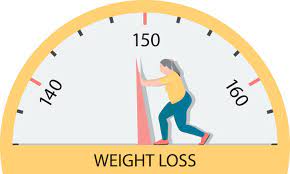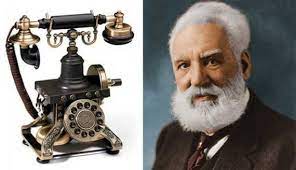Sustainable Weight Loss

Sustainable Weight Loss
Losing weight is a common health and wellness goal for many individuals. While it may seem challenging, with the right approach and mindset, you can achieve sustainable weight loss. Rather than resorting to quick fixes or fad diets, adopting a holistic approach that combines healthy eating habits, regular physical activity, and lifestyle changes will lead to long-term success. In this comprehensive guide, we’ll explore the key principles of effective weight loss and provide practical tips to help you reach your goals.

Sustainable Weight Loss
Set Realistic Goals
Before embarking on your weight loss journey, set realistic and achievable goals. Understand that sustainable weight loss takes time and effort, and it’s essential to be patient with yourself. Aim for gradual progress, as losing weight too quickly can lead to muscle loss and nutritional imbalances. Aiming to lose 0.5 to 1 kilogram (1 to 2 pounds) per week is a safe and sustainable rate.
Create a Calorie Deficit
Weight loss occurs when you burn more calories than you consume. To create a calorie deficit, you can either reduce your calorie intake through mindful eating or increase your calorie expenditure through physical activity. Combining both approaches will yield the best results. However, it’s crucial to strike a balance, as severe calorie restriction can lead to nutrient deficiencies and compromise your health.
Adopt a Balanced Diet
Focus on a balanced diet that includes a variety of nutrient-dense foods. Incorporate plenty of fruits, vegetables, whole grains, lean proteins, and healthy fats into your meals. These foods provide essential nutrients while keeping you satisfied and energized throughout the day. Avoid crash diets that eliminate entire food groups, as they are not sustainable and can negatively impact your metabolism.
Practice Portion Control
Be mindful of portion sizes to avoid overeating. Use smaller plates and pay attention to your body’s hunger and fullness cues. Eating slowly and savoring each bite will help you recognize when you’re satisfied, preventing unnecessary calorie consumption.
Stay Hydrated
Drink plenty of water throughout the day. Sometimes, our bodies can confuse thirst with hunger, leading to unnecessary snacking. Staying hydrated not only supports weight loss but also promotes overall well-being.
Regular Physical Activity
Incorporate regular physical activity into your daily routine. Aim for a combination of cardiovascular exercises, strength training, and flexibility exercises. Cardiovascular activities, like walking, running, or cycling, help burn calories, while strength training builds lean muscle mass, which boosts your metabolism. Flexibility exercises, such as yoga, improve mobility and reduce the risk of injury.
Get Enough Sleep
Prioritize sleep and ensure you get 7-9 hours of quality rest each night. Lack of sleep can disrupt hunger hormones, leading to increased appetite and unhealthy food cravings. Additionally, adequate sleep is crucial for recovery after exercise and overall well-being.
Manage Stress
Chronic stress can contribute to emotional eating and weight gain. Practice stress-reduction techniques, such as meditation, deep breathing exercises, or engaging in hobbies you enjoy. Managing stress is essential for maintaining a healthy lifestyle.
Track Your Progress
Keep track of your weight loss progress, but don’t solely rely on the scale. Other factors, such as changes in body measurements, increased energy levels, and improved mood, are also essential indicators of progress. Celebrate your achievements, regardless of how small they may seem.
Conclusion
Sustainable weight loss is achievable through a combination of healthy eating habits, regular physical activity, and lifestyle changes. Focus on adopting a balanced diet, creating a calorie deficit, and setting realistic goals. Embrace a holistic approach to weight loss, and remember that each person’s journey is unique. Stay patient, committed, and make adjustments as needed along the way. Consult with a healthcare professional or registered dietitian for personalized guidance and support. By prioritizing your health and well-being, you can achieve your weight loss goals and enjoy a healthier and happier life.









